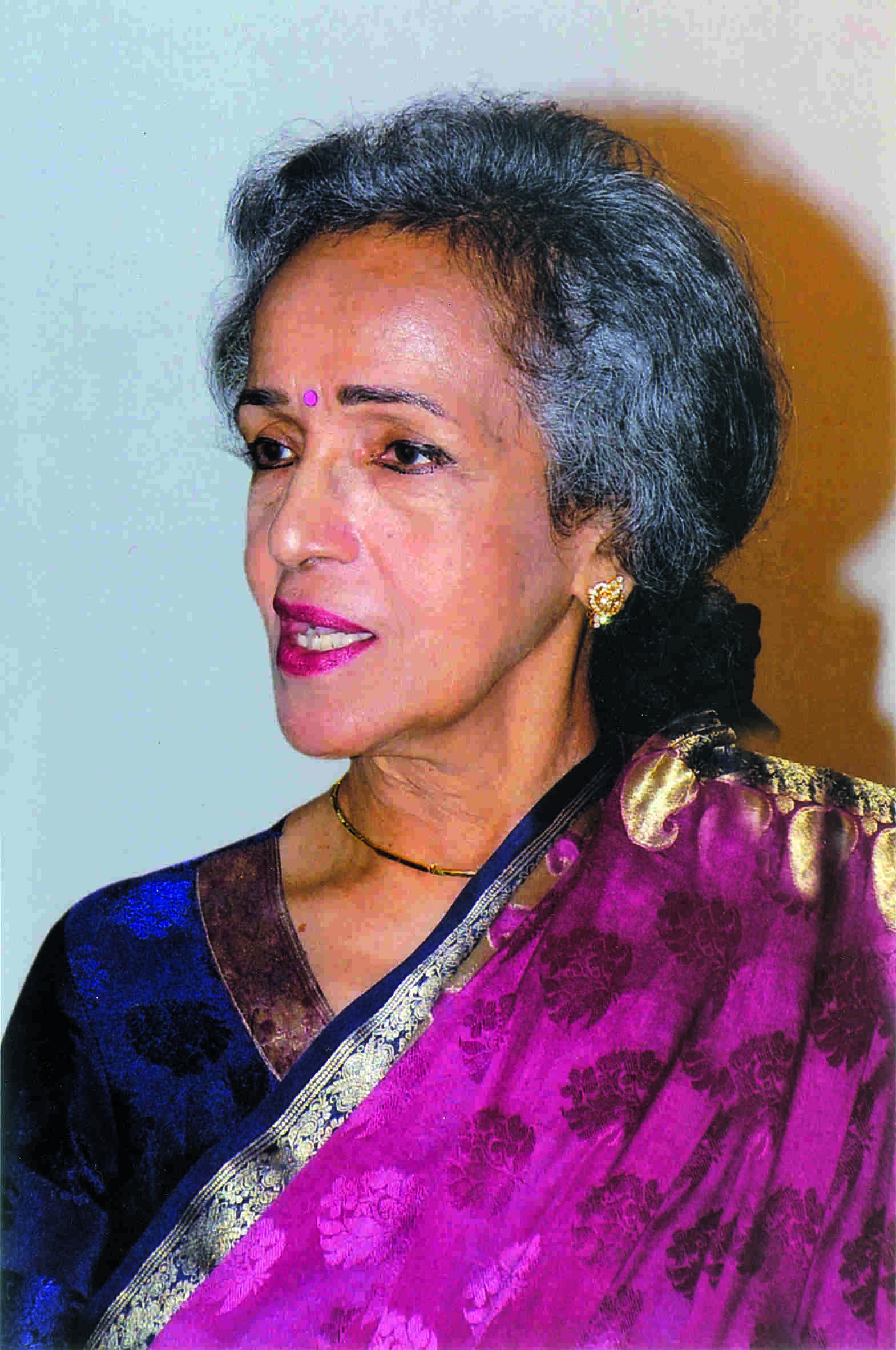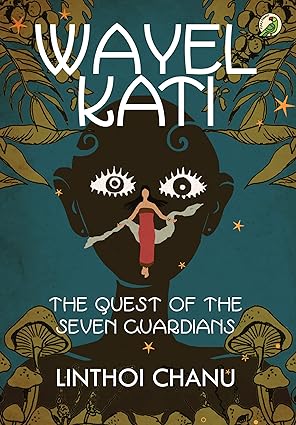Books To Look Out For This Summer!
Bring out your sunglasses and a reading mat, we are going to read this summer. Or perhaps turn your AC on full blast if you

Achala Moulik is a former IAS officer and author of several books on political and cultural history. ‘Rogues Among The Ruins’ is her latest novel based on the life of Indian civil servants. We had an enriching conversation with her.
———————-
“I come from a family of writers..”
Having writers in the family must be inspirational for a young person and Achala Moulik grew up among such people. She shared some of her family history with us.
“My father, Dr Moni Moulik was a frontline journalist in pre-World War II Europe and then a columnist. His Ph.D. thesis was in the Italian language as he was studying in Rome University. My mother Leela wrote articles for Bengali magazines. Our homes in Calcutta, Washington, New York, London, Rome were places of cultural discussions. Living in the world of ideas and current events, I began writing at the age of sixteen. My first article on heritage was published in the Illustrated Weekly of India when I was aged twenty. After joining the IAS I continued to write articles. Then in 1976 I embarked on a serious literary career of writing books on literary history.”
Writing is a creative impulse, like painting, singing and dancing, or practicing music. These impulses spring from within.
On writing historical and journalistic fiction
Achala Moulik has written two novels previously, ‘The Conquerers,‘ a historical fiction in the backdrop of British Raj and ‘Dangerous Dispatches,‘ a novel about journalists in conflict zones. She says, “Any profession offers opportunities to study characters.” Her work as an IAS offered her enough scope to study a lot of people.
“My first novel “The Conquerors” was about an Indian family and an English one against the background of the British Raj. I had a whole range of characters to choose – the early traders, buccaneers, military officers, the Sahebs who became “Nabobs”, the European women who came for adventure and marriage to India and the Indian women who were wives and daughters of the Indian gentry. This novel became a best seller in the summer of 1996. Considerable historical research went into writing this novel that spanned a century and half – 1757 to 1905, showing the evolution of the two races against dramatic events.
Then I wrote and published “Dangerous Dispatches” , a novel about three frontline journalists who report from conflict zones of the 20th century. Since my father had begun his career as a journalist before joining the diplomatic service I absorbed many aspects of a journalist’s life and the evolution of journalism. Again I had to do research on the subject and read the memoirs of renowned journalists. This novel was warmly praised in reviews.”
‘Rogues Among The Ruins’ – Let’s get to know more about the book
“’Rogues Among the Ruins’ was the result of my tenure in the Archaeological Survey of India. I came to know about archaeology, the dedication of the early ASI officers and the malpractices that crept in. So, with the bureaucracy. I have described the men and women of dedication, the sometimes difficult choice they have to make between duty and success, sacrifice and profit. I did not have to research this. The characters and events unravelled before me.
The USP of ‘Rogues Among The Ruins’ is that it is written with the first hand experiences of the author, as a narrator of events.
“This novel is unique because this is a story written by an insider, a civil servant who had ideals and who upheld the ideals, sometimes at cost to oneself. As far as I know, no novel on the bureaucracy, narrating the challenges, disappointments and even dangers, have been narrated by an author who experienced all this. Readers will love the heroes and the rogues, their courage and their shenanigans, all told with “laughter through tears” in the model of Gogol and Cervantes.”
“I wrote by hand, sometimes on my Olivetti typewriter, and now on a computer..”
With four decades of experience in writing, it pays to be a disciplined writer. Achala Moulik scheduled time to write while working, taking care of her family and running a home.
“My writing schedule varied, depending on the situation of my life. As a student I wrote on Sundays. When I was in the IAS, with a fulltime job, a family to look after, a home to run, I wrote after ten at night till midnight. Fortunately I had abundant energy and could rise the next morning at six to begin the duties and tasks of the day.
After retirement I write in the quiet afternoon hours.
Accompanying my writing was classical music which inspired me.
I wrote by hand, sometimes on my Olivetti typewriter, gifted by parents, and then on the computer.”
From Tagore to Tolstoy – the stalwarts who inspired Achala Moulik to write
“Inspiration for writing a story or a book of history or culture comes from ideas that attend it. My books on Russian, Spanish and Italian cultural history also spring from fascination for the ideas and concepts that are connected with the theme. Do we dwell on the present or do we delve into the past, the transient and the timeless? All these concepts fashion a writer’s/ artist’s/ musician’s minds and efforts.
In the four decades that I have been writing both non-fiction and fiction, I have read the works of many historians, many novelists. It is difficult to mention them all. In literature the giants that have been my guide are Rabindranath Tagore, Lev Tolstoy, Alexander Pushkin, Miguel Cervantes and Giuseppe Lampedusa. Historians who have added to my understanding of Time and events are Arnold Toynbee, Will Durant, Benedetto Croce and E.H. Carr.”
“Write for quality instead of focussing on sale..”
We asked such a veteran and experienced writer to share a few tips for aspiring writers.
“I cannot advise on marketing and publishing as these are technical matters best left to the publishers.
For aspiring writers I can only suggest that they write for quality and not to sell. If quality is sacrificed for the temptation to sell more, then there is a degeneration in standards. As the great novelist Hemmingway advised writers, “Write true words.” Truth whether in literature or interpretation of history survives.”
——————————-
Are you a writer with a just finished manuscript? Contact us to help you reach to more readers.
Bring out your sunglasses and a reading mat, we are going to read this summer. Or perhaps turn your AC on full blast if you

Once in a while you come across a book that has the power to pierce through your heart. A Monster Calls is one such book. Written by Patrick Ness, it is a story about a young boy with an ailing mother at home. It covers a range of somewhat difficult topics ranging from death to guilt.

How did you start writing ? I am not sure if I know exactly when I started writing. I’ve always loved to tell stories, and

Well the hard part is over, you finished writing the book , now you have some kind of a contract and the book will be

From the heart and hills of Manipur, the story revolves around seven guardians ‘chosen’ to retrieve the scissor of justice, the Wayel Kati. None of

The author narrates the story of Amit, a middle aged working professional, who faces the same struggles that so many of us in the corporate
Get all latest news, exclusive deals and Books updates.